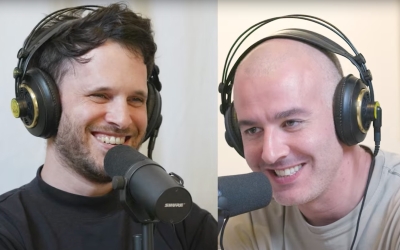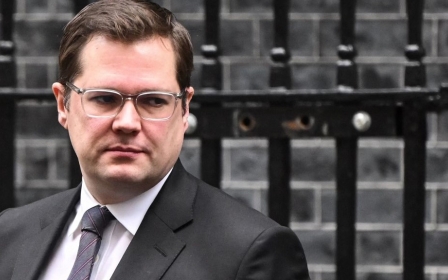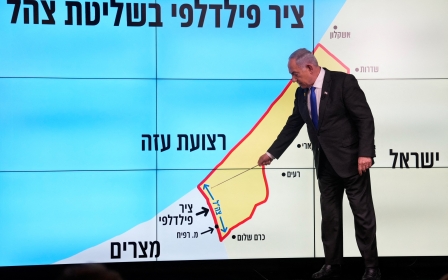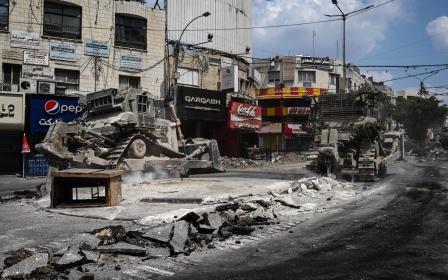UK: Israel denies British Hindu activist entry to occupied West Bank
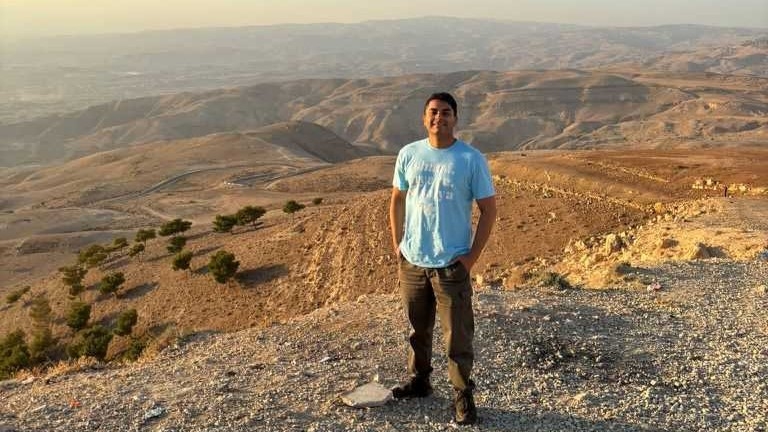
A British Hindu former parliamentary candidate was detained for five hours and then denied entry to the occupied West Bank by Israel - after trying to enter as part of an interfaith delegation.
Rajiv Sinha, 27, stood for Parliament in the July general election for the Green Party in the Cities of London and Westminster constituency, and is now standing in London’s West End local by-election.
He is also the director of Hindus for Human Rights UK, a branch of an international organisation that describes itself as “anti-caste” as well as “anti-Hindutva”, referring to the brand of Hindu nationalism adhered to by Narendra Modi’s Indian government.
Hindus for Human Rights, founded in 2019, has strongly criticised the Indian government for its alleged human rights abuses and attacks on minority groups. Indian cabinet minister Smriti Irani publicly opposed the organisation in 2023.
Sinha was travelling to the occupied Palestinian territories in late August as part of a 34-person multifaith delegation of Jews, Christians, Muslims, Hindus and Buddhists.
New MEE newsletter: Jerusalem Dispatch
Sign up to get the latest insights and analysis on Israel-Palestine, alongside Turkey Unpacked and other MEE newsletters
The initiative, called Interfaith Journey for Justice, was organised by Palestinian Christian group Sabeel and Jewish group Rabbis for Ceasefire. Its itinerary included visits to various sites in Jerusalem, Ramallah, Rahat and Hebron.
The trip’s itinerary included meeting with activists and senior Palestinian figures, among them former grand mufti Ekrima Sabri, as well as visiting Palestinian communities affected by Israeli settler violence.
‘Physically intimidated’
On Monday 26 August, the group used the Allenby Bridge border crossing to pass from Jordan into the occupied Palestinian territories. Of the delegates, 33 of the 34 were allowed through but Sinha was not.
“There were two Palestinians in the delegation, Hebah and Tamara,” he told Middle East Eye. Both of them, who hold American passports, were interrogated at various points but ultimately allowed through.
“Hebah had never been to Palestine before, so it was both a magical and terrifying moment for her.
“At the crossing, a few of us were taking pictures of each other and of Hebah. I took some pictures, and I was seen. A female security guard came up to me and told me to delete the photo.” Sinha recalled.
According to the activist, the soldier made him delete multiple other photos too, including ones taken on the drive to the border crossing, before calling over two male security guards, who took his phone.
He told MEE he was detained for five hours, moved repeatedly from room to room and questioned by several different people.
“I was oscillating between thinking that I’m a British citizen and that the threat of violence was real. They seemed unhinged. I didn’t feel safe. I felt physically intimidated.”
His personal possessions were confiscated, including his phone and laptop. “They made me unlock my phone and went away to do whatever they wanted with it," he said.
When Sinha was released, his phone’s data, signal and wifi did not work for hours.
He was also forbidden from going to the toilet for around three hours. Almost as soon as he entered the toilet, one guard “started screaming, banging on the door until I came back out in a hurry, apologising”, he recalled.
'Trying to uncover a Muslim name’
Sinha, who has a British passport, said the guards asked him if he was Muslim, and for his parents’ and grandfathers' full names. “I think they were trying to uncover a Muslim name.”
One guard, who Sinha said told him he was the head of security at the station, was particularly interested when he found out Sinha was Hindu - and when he saw a social media post Sinha had made accusing Indian Prime Minister Narendra Modi of complicity in Israel’s war on Gaza.
'If I were a public security threat, then the 33 other members of the delegation who share my views would also be public security threats'
- Rajiv Sinha, UK activist
“The guard started speaking in Hebrew with a female guard and took notes. It seemed like they were interested.”
After about five hours, he was handed a form and told to sign it immediately, without being given time to read through it.
The form, seen by MEE, declared that he was denied entry into Israel for “Public security or public safety or public order considerations”.
Sinha said he found this strange. “There is no consistency,” he said. "If I were a public security threat, then the 33 other members of the delegation who share my views and intentions would also be public security threats. The only plausible reason was to intimidate and disincentivise.”
Yet he feels that his own experience is “not important” when put into perspective. “For Palestinians in the West Bank, it is ordinary to be stopped, questioned, disbelieved, and turned away from entering their own home,” he told MEE.
“How could we, the world, have allowed such a thing to become ordinary?”
He said the experience has strengthened his resolve to “redouble my activism and advocacy”.
“My Hinduism guides me towards embodying the belief that we are all one - people and planet.”
Middle East Eye delivers independent and unrivalled coverage and analysis of the Middle East, North Africa and beyond. To learn more about republishing this content and the associated fees, please fill out this form. More about MEE can be found here.


